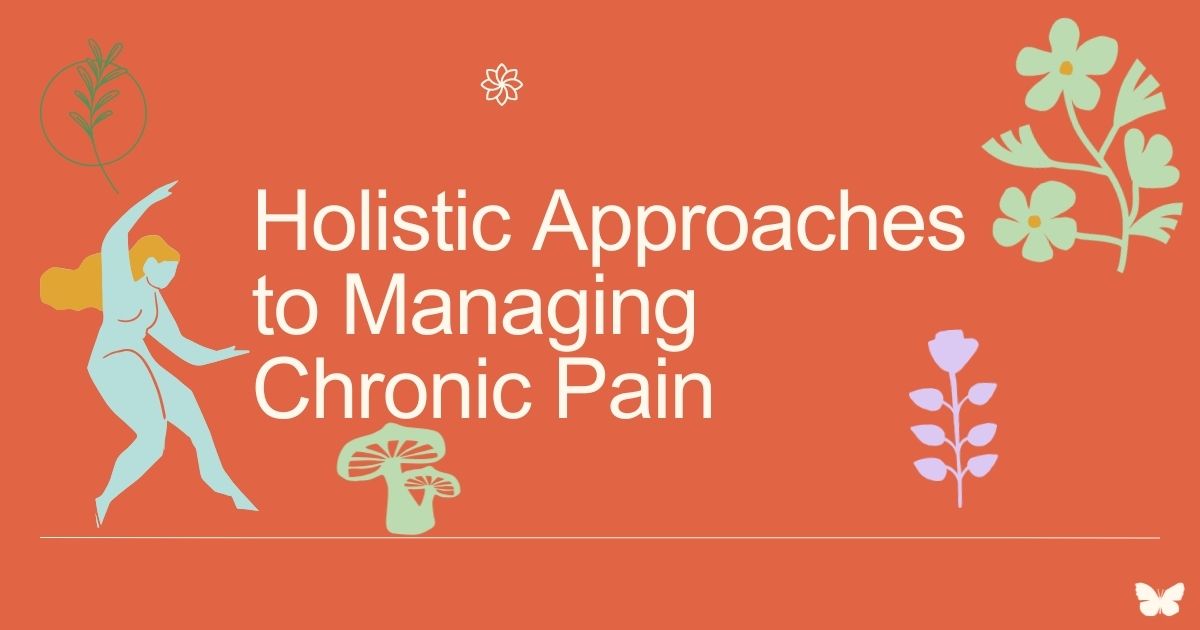Unlocking the Power of Exercise and Nutrition
Managing chronic pain is a journey that many individuals navigate daily. It’s a complex condition affecting millions, and its management often requires a nuanced approach that goes beyond traditional medical treatments. In this exploration of holistic approaches to managing chronic pain, we delve into the pivotal roles of exercise and nutrition, not just as remedies but as vital components of a comprehensive pain management strategy.
The Role of Exercise in Alleviating Chronic Pain
Exercise is a cornerstone of holistic health, offering numerous benefits that extend to the management of chronic pain. Engaging in physical activity isn’t merely about staying fit; it’s a proactive strategy to enhance one’s quality of life by mitigating pain. The relationship between exercise and pain relief is well-documented, emphasizing that movement can be a potent medicine.
For those enduring chronic pain, the thought of exercising might seem daunting or counterintuitive. However, evidence suggests that tailored exercise programs can significantly alleviate pain and improve function. It’s not about high-intensity workouts that could potentially exacerbate pain but about finding the right balance and activities that suit one’s individual needs and limitations.
Starting with gentle, low-impact exercises can set the foundation for a gradual increase in physical activity. Walking, swimming, and tai chi are excellent examples of activities that can boost endurance, flexibility, and strength without overburdening sensitive areas. The key is to listen to your body and adjust the intensity and duration of exercise accordingly.
Moreover, physical activity stimulates the release of endorphins, the body’s natural painkillers, which can elevate mood and reduce pain perception. It also helps combat weight-related issues, as excess weight can put additional strain on the body, exacerbating pain, particularly in weight-bearing joints.
Integrating Nutrition into Chronic Pain Management
Nutrition plays a critical role in managing chronic pain, with certain foods having the power to either diminish or intensify discomfort. Adopting an anti-inflammatory diet is a strategic move that can offer relief and support overall health. Foods rich in omega-3 fatty acids, like salmon and flaxseeds, along with fruits, vegetables, nuts, and whole grains, can help reduce inflammation and associated pain.
Conversely, processed foods, sugars, and trans fats can aggravate inflammation and, consequently, pain. Thus, being mindful of dietary choices can serve as a powerful tool in your pain management arsenal. It’s not about strict dieting but about making informed, healthful food selections that nourish the body and potentially reduce pain intensity.
Hydration also plays a crucial role in this context. Adequate water intake ensures that nutrients reach the cells efficiently and helps eliminate toxins, which can contribute to pain reduction. In essence, what we consume can significantly influence how we feel, particularly when it comes to chronic pain.
Creating a Personalized Plan
Each individual’s experience with chronic pain is unique, necessitating a personalized approach to exercise and nutrition. Consulting with healthcare professionals, such as physical therapists and dietitians, can provide guidance tailored to individual needs and circumstances. These experts can help design an exercise regimen that considers specific pain points and dietary advice that aligns with personal health goals and pain management needs.
In addition, setting realistic and achievable goals for both physical activity and dietary changes can foster motivation and progress. Tracking these goals and celebrating small victories can be incredibly empowering for individuals managing chronic pain.
Expanding Horizons: Psychological and Complementary Strategies in Chronic Pain Management
Managing chronic pain transcends physical interventions, reaching into the realms of the mind and alternative therapies. This holistic journey involves not only the body but also the mind and spirit, offering a more comprehensive approach to pain management. In this section, we delve into cognitive strategies, explore various complementary therapies, and address frequently asked questions, providing a rounded perspective on managing chronic pain holistically.
Embracing Cognitive and Psychological Approaches
Cognitive-behavioral therapy (CBT) stands out as a beacon for those battling chronic pain. It’s a strategy that empowers individuals to reframe negative thoughts, fostering a more positive and proactive approach to pain management.
- Understanding CBT: This method involves working with a therapist to identify and challenge negative thought patterns, replacing them with more positive and realistic ones.
- Self-management strategies: Learning to set manageable goals and progressively achieve them can significantly enhance one’s quality of life and sense of autonomy.
- Stress management: Techniques such as deep breathing, meditation, and progressive muscle relaxation can reduce stress levels, which may, in turn, diminish pain perception.
Exploring Complementary and Alternative Therapies
Beyond conventional medicine lies a spectrum of complementary therapies that can synergize with physical and cognitive strategies to manage chronic pain more effectively.
- Acupuncture: This ancient practice can help release blocked energy paths, potentially reducing pain and promoting healing.
- Massage Therapy: Regular massages can alleviate tension in the muscles, improve circulation, and offer relief from pain.
- Yoga: Integrating yoga into your routine can enhance flexibility, strength, and mental well-being, all of which are crucial in managing chronic pain.
Frequently Asked Questions (FAQs)
- Can diet really affect chronic pain?
- Yes, certain foods can increase inflammation and pain, while others can diminish it. Incorporating anti-inflammatory foods like berries, nuts, and leafy greens can be beneficial.
- Is it safe to exercise with chronic pain?
- Absolutely, but it’s crucial to consult with healthcare providers to tailor a program that’s safe and effective for your specific condition.
- How can stress exacerbate chronic pain?
- Stress triggers the body’s fight or flight response, which can intensify pain perception. Managing stress through mindfulness and relaxation techniques can help mitigate this.
- What should I consider before trying alternative therapies?
- Consult healthcare professionals, research thoroughly, and consider any potential interactions with your current treatments.
- How do I start with cognitive-behavioral therapy for pain?
- Seek a referral from your healthcare provider to a qualified psychologist who specializes in CBT and chronic pain management.
